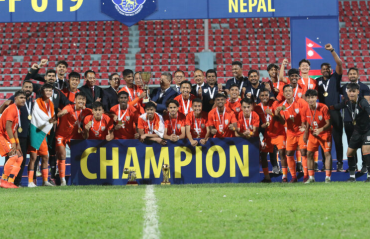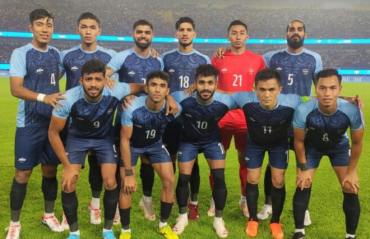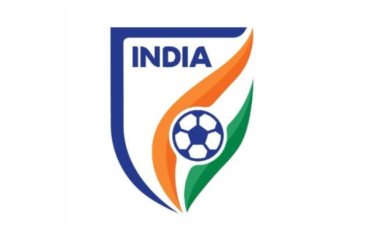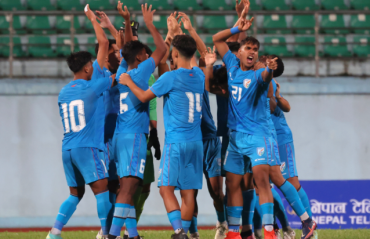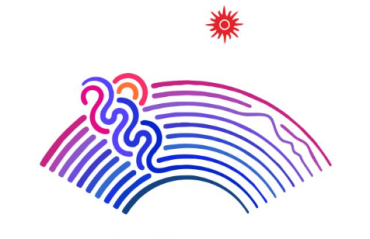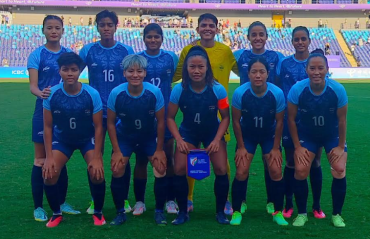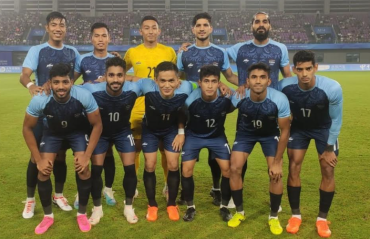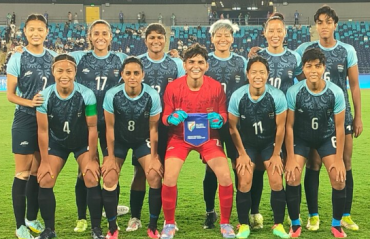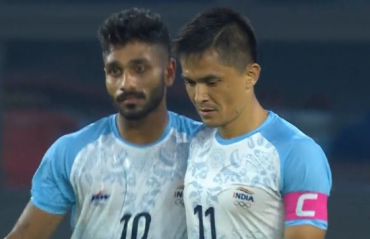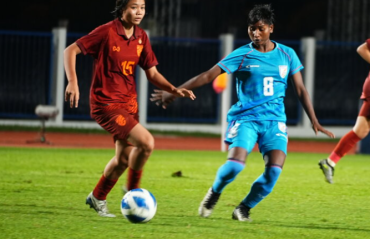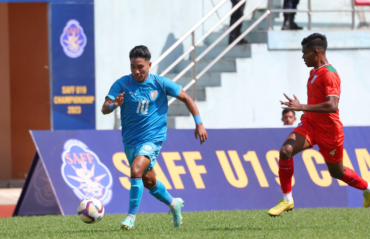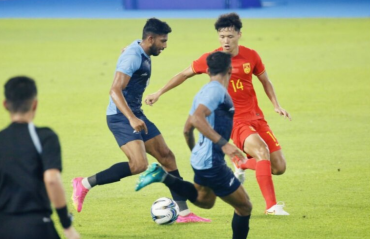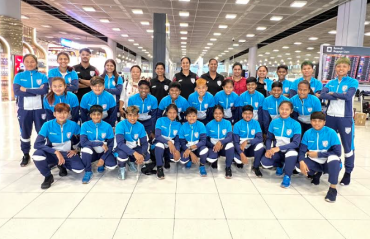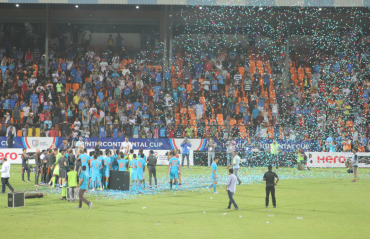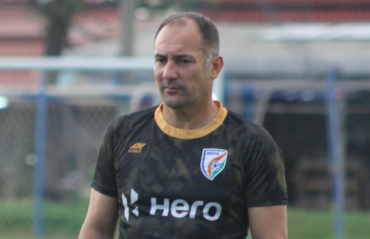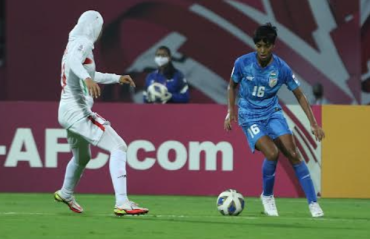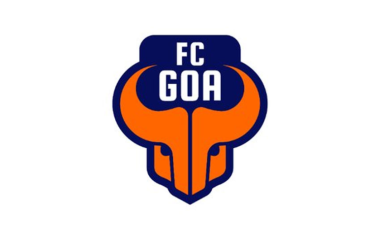IGNORING RED: Why the silence of coaches is unhealthy for ISL and will stifle its growth
- By Kevin Barboza

- October 24, 2016
HOW MUCH IS A POINT worth? Three points for a win, one for a draw, and none for a loss. A football match can end up with either of those 3 results. In a league format, every point matters. That's because when the qualification to the semi-finals is adjudged , it's the number of points that are taken into consideration first. Four teams with highest points go through. In most qualifications, usually the qualification criteria order is as below:
- Total Points
- Goal difference
- Head-to-head points / Goal difference
To simplify, it works like this:
- The teams with highest overall points go through.
- If two or more teams are tied on points then the team with a better goal difference goes through.
- If that criterion still does not churn out just one team, then it goes down to the head-to-head highest points and/or the goal difference between the tied teams.
Imagine a team on the fifth position, one point short of the fourth-placed team and a goal difference much better than the fourth-placed team. What stands in between the two teams? THAT ONE TINY POINT! It is worth the qualification and make-or-break for the team. At this juncture, the teams will introspect where they got it all wrong. People in the team with the mathematical intelligence and other data analysts will prepare a fancy presentation or a 50-point report to describe where the team lost the plot. With all the root cause analysis, the effort may not unearth the real reason that evades all mathematical understanding as to where that ONE point was lost.
A match situation
Say, in a game, we are post the 90 minute mark and into a minute of added time. One team is leading by a goal. Their 3 points are guaranteed if they defend this last corner successfully. The ball arrives low in the box, a defender closes in on an attacker and the attacker has no place to cross that ball, he shifts his body weight onto the defender and takes a fall. The whistle is blown, defending team thinks it's the full time whistle. The attacking team is looking at the referee and he points to the penalty spot. Extreme emotions erupt for both teams, one overjoyed, the other is fuming with anger. Penalty slotted home. 3 points stolen. One point given to both the teams. THIS is where those points were lost and they missed the chance for qualification.
The reaction
In the aftermath of the game, what would one be expecting at the post match conference from the Coach and players who think the points were stolen from them? They are expected to go all guns loaded against the referee right?. Well No, the Coach comes out and just says one line: "I think the opponents played well today."
Either team's fans would be startled at the reply of the coach as to why the referee's bizarre decision wasn't even mentioned in the talk. Does the result have no significance to the team? Is it that the team is confident that those 2 points aren't going to play any part in their qualification?
The above scenario is not hypothetical at all. Once the match is over you are not going to get those 2 points back, but the least you could do is talk about it. Voicing one's opinion about the game is as important as showing the belief you have in the team. One need not criticise the referee and his decision, but a mention in your post-match talk shows solidarity for the team players about the disappointing end to the game. Had this situation occurred on a second occasion and had coach's reaction remained the same, it would create a difference between the coach and the team players.
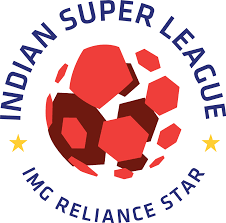
Photo: ISL
This season of the ISL has seen this situation more than once.The coaches and team management have remained tight-lipped and stayed away from making statements about things that can create an impact on the brand-conscious Indian Super League (ISL). But how many coaches have come out and spoken their view openly? Other than Zico, none.
In the previous editions of ISL there have been incidents where coaches like Habas criticised the match officials for a below par game. That act by Habas attracted a fine from the disciplinary committee. Of course, over-the-board and unwarranted criticism is never welcome and that was the reason of the fine being imposed on Habas.
It is important to talk openly about things like this in a constructive manner. This can bring about two things -- one, everybody knows what the coach thought about the controversial incident, and secondly, the next time something similar happens you can prove a pattern of things going the wrong way. So, Habas clearly shows that he is against bad referee decisions. Bad decisions are liked by no one, that is for sure, but how many teams in the ISL acknowledge this simple fact openly?
See and ignore
There have been direct red cards brandished for fouls that deserved just a yellow. Penalties awarded for the slightest of touches. Yellow for simulation for the attacking team when they claimed genuine penalties. Consistency has been missing in the refereeing. There have been occasions where a red card unjustly given to one team being nullified by giving one to the other team as well just to balance out the number of players.
Recently, there was an incident in the FC Pune City and Chennaiyin FC game late in the 2nd half where CFC's Dudu was maliciously stamped on the leg by Pune City's Ravanan. This incident was shown in the TV broadcast, but the referee and his assistant clearly missed it. The act was deserving of a direct red and that could have changed the course of the game as Chennaiyin were in the lead at that point.
That could have been an honest miss by the officials. The punishment could have only be meted out if the issue was referred to a disciplinary committee on the basis of a video analysis. Such incidents can be threatening to a player's career and must never be taken lightly.
The most striking point is that, AGAIN, this didn't find a mention in the coach's post match or in the team's official media statement. ISL also features developmental under-23 players. With such budding teenage players who are just getting started in their career, a tackle of such venom may just end their dream of playing professional football.
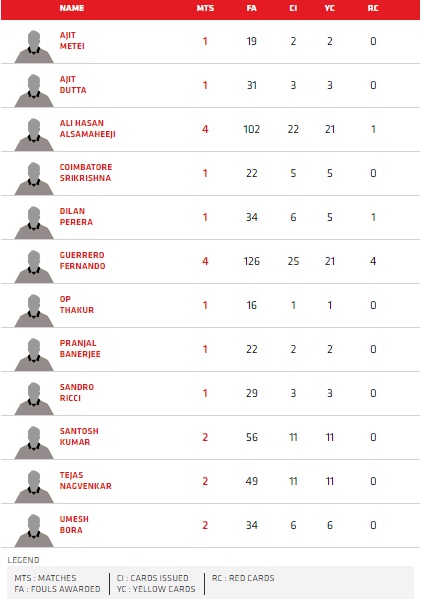
In a recent example, before the AFC Cup semi-final second leg, the Johor Darul Ta'zim head coach spoke out against the decisions of the referees that resulted in them having 3 players suspended. Some call it mind games prior to the game, some say it's just a way of using the facts put forth as an excuse in case of an unfavourable result.
These are things which can create a storm in any league anywhere in the world. Coaches and players would talk about it long after the games. It would be part of their speech every time they got a chance to mention even indirectly how they were affected by them.
Let's grow football
Indian football has got itself a good name by inviting a large number of foreign players to play in India. The concept of ISL has good intentions in that regard. It is a competitive league with a demanding schedule. Teams and players give it everything to make a good game for the fans to watch.
The ISL started in the year 2014 when most of the fans were mostly football lovers rather ones with knowledge of the game. Those who had knowledge followed mostly the international high-profile leagues where the best players performed.
After two editions, most of the newbies and football lovers have started following Indian football more seriously and some Indian players are well-known. They are also aware of the standard of play and refereeing in the international leagues.
Voice of the coach
Although the ISL cannot be placed at the same level as these leagues, it's useful to draw comparisons. Most notably the professionalism involved. Had the earlier-mentioned situations taken place in these premier leagues, the reaction from the coach or manager would be remarkably different.
The words of the coach echo the sentiments of a team, and he would refuse to accept decisions that mar a good performance on the field.
What must be done?
ISL was in 2015 the fourth-most viewed football league in the world. With that kind of popularity, the fans also expect the standards to be of a high quality and reach those exhibited by the other leagues. To bridge the gap, the first thing that is needed is to improve the quality of refereeing, which been a problem from the first edition itself. ISL can look to getting officials who have a good reputation in the international market.
And secondly, ISL must be a more transparent tournament with Coaches being permitted to open their opinions on any dubious decision during the match. They might not be always right, but by doing so, not only do the players feel that they have a voice, they also win the trust of their growing legion of fans. The players go out to battle each day knowing the caoch has their back, and fans extend their love and support through thick and thin. When the team management expresses their honest thoughts, it is just another way to make the bond between the fan and team stronger. It is a morale-booster for both all stakeholders, though the referee's decision and the result of the match cannot be changed.
ISL's decision to curb dissent might work well in the short term, but will backfire big time and affect the growth of this fledgling league which is still trying to gain currency amongst football lovers. If it wants to be the premier league in the country, it cannot reach there riding on the back of bad referees and silent coaches.
Get the latest in the world of Sports, Teams, and Players! Free Delivery to your Inbox.









